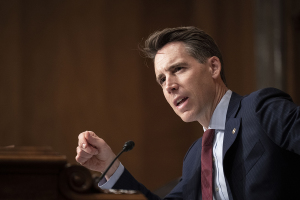Global Economy Needs Radical Change, WCC Declares
World leaders need to make radical changes to the global economic system so that it is more just to the poor and protects the environment, said the world's largest ecumenical body ahead the U.N. International Conference on Financing for Development that began Saturday.
"Now more than ever, radical changes and tangible commitments are needed," insisted a statement by the World Council of Churches delegation attending the U.N. conference in Doha, Qatar.
The statement described the Doha meeting as a "historic opportunity for world leaders to take responsibility and enact transformations towards building an equitable and sustainable global economic system that meets the economic, social and cultural rights of all, women and men, and nurtures the environment."
The International Conference on Financing for Development began on Nov. 29 and will continue until Dec. 2 with the purpose of reviewing the implementation of the Monterrey Consensus adopted by U.N. member states in Mexico in 2002. The consensus identified policies and actions to mobilize resources for sustainable development, poverty eradication and gender equality.
WCC, an ecumenical fellowship of 349 Protestant, Orthodox, Anglican and other churches representing more than 560 million Christians in over 110 countries, has criticized the current international financial system for not only being "inefficient," but also "based on injustice."
The church body urges the United Nations to "take leadership in redesigning an international financial architecture that establishes a global system of regulation as well as enlarges the space for developing country governments to enhance social protection in crisis periods."
Among the proposed changes to the economic system is unconditional cancellation of illegitimate debts claimed from poor countries; the removal of structural inequalities in the global trade system; the establishment of mutuality, transparency and civil society participation in negotiations; and the formation of a "just and sustainable" financial framework with climate change in mind.
"Rich, industrialized countries have … an ethical and moral obligation to pay for the ecological damages they have inflicted on poor countries through their disproportionate appropriation of natural resources and unsustainable lifestyles," the WCC statement declared.
The U.N. meeting on Financing for Development opened on Saturday with international leaders urging cooperative effort to help developing nations survive the global economic crisis, according to Agence France-Presse.
"Global crises call for global solutions," European Commission president Jose Manuel Barroso declared at the conference.
"A global answer requires the presence of all regions in the world, representing the voice of the rich, the emerging and the poorest," he said, noting that 1.4 billion people live in extreme poverty on less than 1.25 dollars a day.
U.N. Secretary General Ban Ki-moon meanwhile warned that if the financial crisis is not handled properly, it will "become tomorrow's human crisis," according to The Gulf Times.
"Social unrest and political instability will grow, exacerbating all other problems," he said.
At the opening of a four-day conference, Ban also linked the financial crisis to climate change.
"The financial crisis is not the only crisis we face. We also confront a development emergency and accelerating climate change," Ban said.
"These threats are inextricably linked. They must be dealt with as one," he told journalists in Qatar. "We need a truly global stimulus plan that meets the needs of emerging economies and developing countries."
Ban hopes the conference can formulate concrete plans to aid developing countries.



























